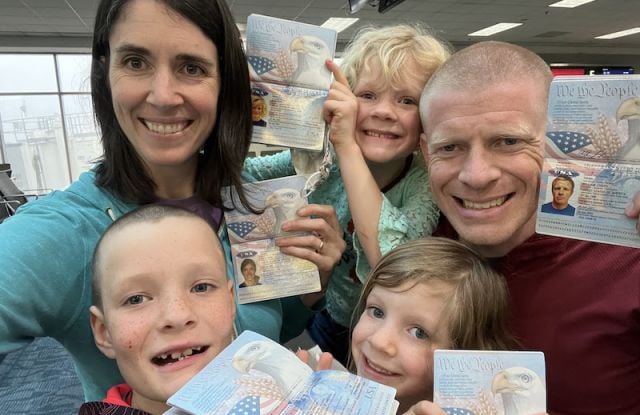10 Reasons Why a Gap Year is Your Best Choice in 2020

Your parents tell you “go to college,” but colleges tell you, “we don’t know what it’s going to look like in the fall.” They want you to attend, but don’t have a good plan for dealing with the virus in an environment where people are squeezed into dorms and classrooms.
So you’re stuck at home and your plans for the future are going up in flames. We know we probably won’t have a vaccine before the end of the year. Colleges know the virus is going to kill enrollment. And as a student, the idea of getting more student debt doesn’t look so great anyway.
Why not take adversity and turn it into a positive? In much of the world, young people are used to taking a Gap Year as they prepare to transition to career. Why not in America too? It’s the perfect time to stop and reflect about this new world that you’re entering and who you are. We see ten reasons why:
1. Take some time. Too much change too quickly. You need time to pause and take stock and understand where the world is headed and how you fit.
2. Life coaching. Get help understanding how the world has changed. Opportunities we used to take for granted are gone. And new opportunities will spring up to take their place. We need to “see the playing field.”
3. College uncertainty. Colleges pivoted to a home-based Zoom-call marathon. What will they look like in the future?
4. Say NO to debt. The average college student graduated with $37,000 in debt this past year. And now they are carrying it around with them as a ball-and-chain. Do you want that?
5. Find community. When they finally let us out of our quarantine, where will we find community? Social media-living is too virtual – what should replace it if not community?
6. Serve. The world is hurting. It needs your help. People have lost their jobs, are sick, and lonely. Jesus calls us to serve them.
7. Find a mentor. Too many of us lack the mentors who could help us make sense of our lives. Wouldn’t it be great to have someone with experience you trusted?
8. Get help debriefing identity questions. Who is this new post-COVID-19 you? Are you OK? Do you feel good about yourself?
9. Customize your learning. Mass-produced learning makes you feel like a production-line widget. There must be something that fits you better.
10. Get a biblical worldview. The global order is shifting. What are we to think of China and India in light of our social distancing? It’s more important than ever for you to update your worldview.
What the world sees as catastrophic could actually be a wonderful opportunity for you. Now is not the time to embrace the uncertainty of a Zoom-based classroom. Wouldn’t it be great to not just learn about something, but to try it out? Why not invest in a gap year program in an area where you feel called?



Hey Seth — I appreciated your perspective, and certainly, a Gap Year could be one possible option for young people considering college this fall. But I did want to offer an alternative perspective for consideration. And in full disclosure, I know I bring my bias as a college professor (but hey … we need to make a living as well :-).
As one of my students put it … by the time school starts in the fall, this would’ve BEEN a Gap Year! Six months stuck at home (which felt more like a year), they had the opportunity to do many of the things a Gap Year would have afforded. They are ready to get back on campus, and start the next phase of their life, which is preparing them for the rest of their lives.
Speaking of preparing — I know most (or all) colleges & universities have been preparing like my small, private Christian university has been, to receive students back in the fall. They are spending huge amounts of money (mostly from earmarked grants and donations), to prepare the classroom, dorms, and cafeteria to be safe with new equipment and new protocols.
In addition, many schools are offering “hybrid” options, where students will have the option of going to class in-person, or join by live video feed. This is totally different to “online learning,” and it’s kind of the best of both worlds, without compromising safety, or the robust interaction of the classroom, and access to professors and mentors live and in person.
Schools are also making contingency plans, that in the case where we had to once again send students home mid-semester — we are so much more prepared to so technologically, and as far as curricula is concerned.
Online education is certainly a viable option for many people (and necessary for others). But it is not for everyone. I know my students did not enjoy switching to a remote format the last 2 months of class, and are anxious to get back on campus. There is so much more to an education than just “dissemination of information.” And the college experience provides huge advantages.
Further, I can’t think of a better time to attend university. As I write this, I am re-writing all of my syllabi, and this is a very exciting time to be a professor & mentor – with the goal of preparing students for this brand “new world” we have just been thrust into. From both the perspective of dealing with the topic of global pandemics (preparing future mental health professionals); as well as helping students process this new world of racial reconciliation and navigating through the very complex racial issues and tensions our country is experiencing.
Lastly, as a small Christian University, we will be able to provide the type of mentoring, small-group interactions, and life-on-life experiences that many larger schools are not able to provide. As a professor, I am not only bringing my life experience and education into the classroom — I am bringing my cross-cultural experience as an immigrant, and as a 35-year veteran, bringing the gospel and hope to kids of diverse backgrounds in the inner-city. Now I get to equip the next generation to do the same! This is very exciting for me, and my students are eager to get back into it.
I did appreciate your article … I just wanted to share a different perspective for consideration. Maybe a follow-up article on “Ten Reasons College Students will Have an Amazing Experience in the Fall” :-).
Respectfully,
Tommy C.
Tommy,
I always enjoy hearing from you and you do make a good case. Still, I found it interesting that simultaneously with your comment I received this in my inbox from Professor Scott Galloway of NYU:
https://www.profgalloway.com/higher-ed-enough-already?utm_source=newsletter&utm_medium=email&utm_campaign=NMNM20200626#comments
“US university presidents and chancellors, enough already.
It’s time to end the consensual hallucination between university leadership, parents, and students that in-person classes will resume in the fall. The bold statements from presidents and provosts are symptomatic of the viruses that also plague American leadership and business: exceptionalism that has morphed into arrogance and an idolatry of money that supplants regard for the commonwealth.
These statements strike a similar tone to a CEO in the midst of a disastrous earnings call who demonstrates near-delusional optimism so investors don’t sell shares. The declarations could be interpreted as: “Parents, please send in your deposits. Nothing wrong here, nope, all good!” A combination of self-aggrandizement and elitism has convinced American universities that our services are worth indebting generations of young people, and now risking becoming agents of spread.”
His rant goes on from there…